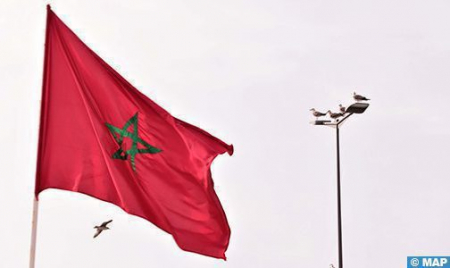Migration management: Spanish Jurist Highlights Morocco’s Humanistic Approach
The actions taken by Morocco to manage migratory flows, as part of a “humanist, proactive, and holistic” approach, are an “example to be followed” by other countries in the region, according to Spanish jurist Miguel Angel Puyol. Morocco, which suffers the consequences of irregular immigration as a transit country, is making considerable efforts to fight the mafias involved in human trafficking while other countries, such as Algeria, are failing to shoulder their responsibilities in this area, Puyol told MAP. Conscious of the global and multidimensional dimension of the migration phenomenon, whether regular or irregular, Morocco is constantly demonstrating its ”responsibility, credibility, and reliability” in the fight against mafias whose modus operandi has become increasingly violent, said the expert specializing in Maghreb affairs. Spain is increasingly aware of the ”crucial” role played by the Kingdom in migration management, he stated. The cooperation between Morocco and Spain has made it possible to establish a renewed partnership based on trust, information exchange, and coordination at the highest levels,” he stated. In his opinion, the significant results achieved in this area, notably a sharp drop in the arrivals of migrants on Spanish shores, are the most eloquent proof of “fruitful and successful bilateral cooperation.” “Morocco, a country that honors its commitments in a spirit of solidarity and humanism towards its African friends, is a reliable partner for Spain and Europe,” the expert observed. He also deplored that certain hostile circles still dwell on archaic positions regarding migration management. Those who still believe that Morocco is not a victim of immigration and does not suffer its consequences should update their data and review their positions, which are a far cry from reality,” he insisted, adding that mafias are taking advantage of the “negligence” shown by other countries in the region to carry out violent and organized attacks, as was the case during the events of June 24, 2022, in Nador. Moroccan and Spanish law enforcement agencies are under daily and permanent pressure from mafias that use more innovative and aggressive modus operandi to achieve their objectives, which is why the efforts made by both countries need to be backed up by more effective financial resources and mechanisms, he explained. Morocco alone cannot control an international phenomenon of this magnitude. “The involvement of the countries in the region, increased commitment on the part of the EU, and multidimensional cooperation are the keys to progress towards a more serene management of the migration problem,” the Spanish jurist observed. According to the expert, bilateral cooperation between Spain and Morocco is producing remarkable results, thanks to the joint actions carried out on both shores of the Mediterranean and the willingness to move forward in this multi-sectoral collaboration. The multidimensional nature of the migratory phenomenon calls for a global, united, and integrated response from all African and European stakeholders, he concluded.

